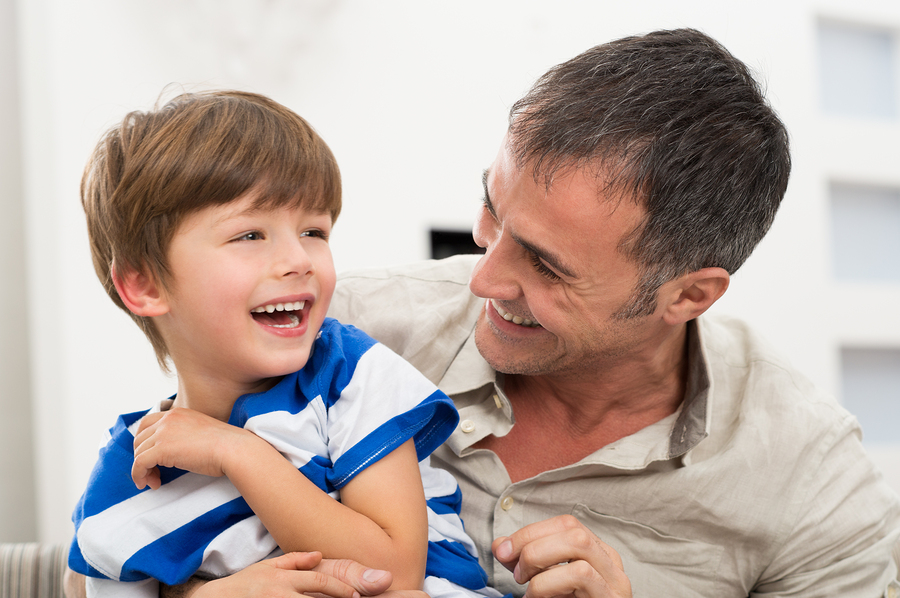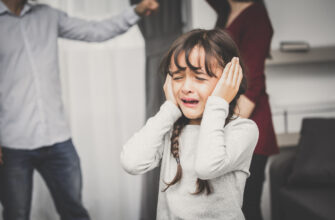
I used to feel helpless and overburdened by my emotions when I was around my kid, who is quite sensitive. Here’s what I did to conquer it.
My very sensitive youngster was having two to three meltdowns a day at one point. If I didn’t play hide-and-seek with her, she would start to scream. When things didn’t go as she had intended, she would lose her cool quickly. She was also easily upset when I imposed punishment.
Back then, I gave her my my attention. But, no matter how much we cuddled and played, she kept asking for more. She had no desire for emotional privacy. And to make matters worse, she believed that the harshest punishment was for me to inform her that I needed time to calm down.
You see, I have a high threshold for pain, much like my daughter. I therefore felt like I was losing who I was as a person since my own feelings and thoughts were not accepted. I felt I had to give her my whole attention since I took in all of her feelings.
Yet, I couldn’t manage that much feeling. For both of us to succeed, I needed to find out how to strike a balance between my emotional demands and those of my kid.
Let’s have a look at what it means to be a highly sensitive youngster before I go on.
The Science Behind Highly Sensitive Children
First of all, if you have a sensitive kid, they don’t have anything “wrong” with them and they don’t need to “overcome” their sensitivity. To some extent, everyone is sensitive; yet, some individuals are more sensitive than others.
In fact, about 1 in 3 individuals score high on sensitivity – 30 percent — both physically and emotionally, and it’s equally frequent for males and girls. (Although around 40% of persons have average sensitivity, 20% have poor sensitivity.) Environmental sensitivity is the term used by researchers for this quality ( also known as Sensory Processing Sensitivity). However, be assured that all three of these degrees of environmental sensitivity are regarded as healthy and typical.
Therefore you can see why those who fall at the top end of the sensitivity continuum, such as children and adults, are referred to as extremely sensitive people (HSPs). Additionally, they all share a few distinguishing traits: they frequently have heightened sensitivity to both their physical environment and other people’s emotions; they can pick up on even the smallest details; and they are often affected by sounds, textures, and other environmental factors that less sensitive children might brush off. They are also very creative, sensitive, and profound thinkers. Other researches have also connected giftedness with high sensitivity.
If your kid is sensitive, it’s probable that they were born that way, and as they get older, their sensitivity will only increase. They will always be sensitive, but they can learn to control their sometimes-overpowering emotions, better manage their overstimulation, and make the most of their sensitive abilities.
The greatest thing you can do as a parent for your kid who is very sensitive is to help them learn to appreciate and value their sensitivity. You may do this by assisting them in comprehending why they feel certain things more strongly than other people.
How I Parented My Highly Sensitive Child — Before I Fully Understood Her Sensitivity
Essentially, I recognized I had been parenting my kid incorrectly until I understood she is very sensitive:
- The more I learned about being an HSP, the more I understood that my attitude contributed to my child’s overwhelming reliance on me and frequent emotional outbursts.
- I believed that she was delicate because she was an HSP. (I was mistaken!)
- I mistakenly saw acts of love as enabling and saving.
- I believed that being nice meant accepting my child’s rude conduct.
- I didn’t establish sensible limits.
- My daughter felt my anxiety, which made her even less able to control and manage her emotions. I had anticipated my daughter to be tough.
I changed my viewpoint after realizing that neither my extremely sensitive child nor myself benefited from my conception of childrearing. I had to since, according to studies, children who are very sensitive are vulnerable to the quality of their surroundings in addition to the fact that I was feeling overwhelmed.
It was also not an option to just sit back and hope for the best. My parenting style was too often reliant on my (or my child’s) emotions, which made me unpredictable. Depending on how much I need my quiet time, I was either too forgiving (or too rigid). My study has shown me that extremely sensitive kids require predictability more than anything else.
I thus started to consider my own requirements and constraints. I now practice daily. I still have difficulties. But I stop when the going gets tough. I work out and then I stop. Making modest adjustments every day for both my benefit and the benefit of my very sensitive kid was the key to changing my perspective.
After considering everything, the following are the top five strategies that enabled me to establish my requirements in my interaction with my extremely sensitive kid after feeling helpless and emotionally overburdened (without feeling bad about it).








